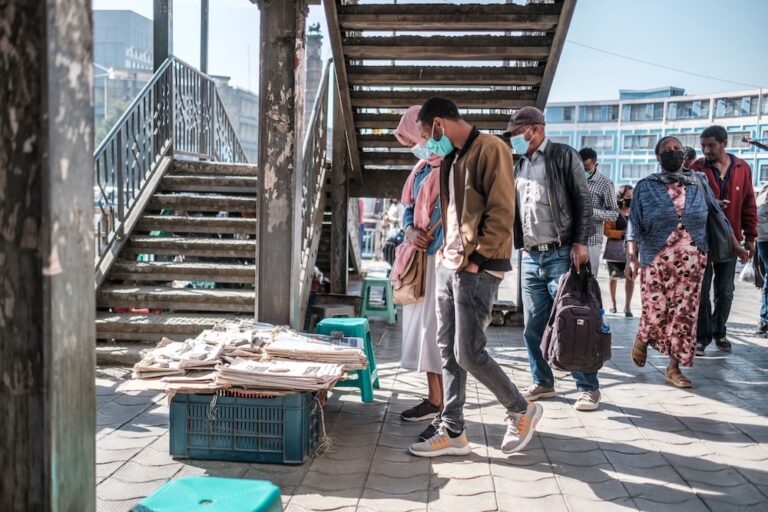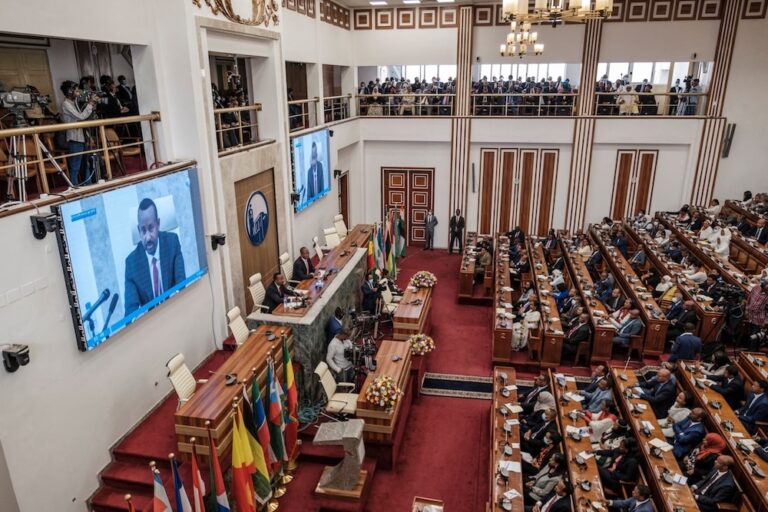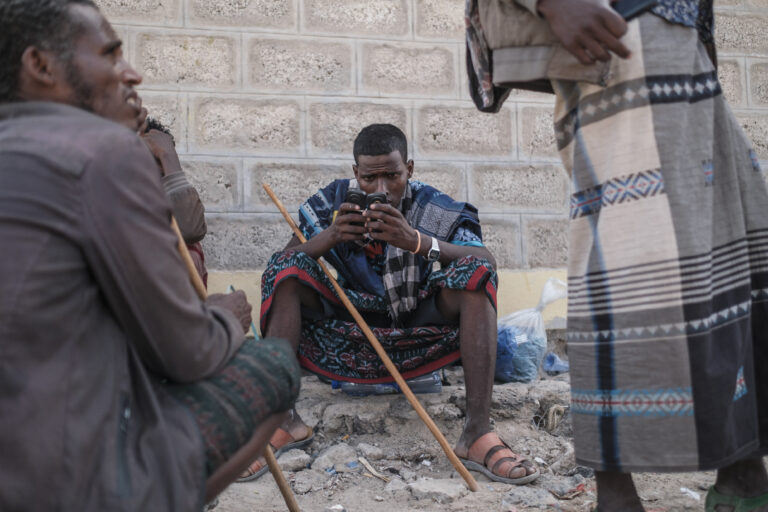A crackdown on protests by Ethiopia's Muslim community has seen hundreds of community members and journalists harassed, assaulted and detained.
Ethiopia’s reputation as a model of religious tolerance has come under scrutiny in recent weeks, as peaceful protests by the country’s Muslim community in the capital, Addis Ababa, have prompted a crackdown by Ethiopian police and security services. Hundreds of Muslims have been harassed, assaulted and arbitrarily arrested, according to Human Rights Watch reports. Local journalists and media outlets covering the protests have also come under fire, notes the Committee to Protect Journalists (CPJ).
Ethiopian Muslims have been demonstrating after Friday prayers for months to protest against religious discrimination and government policies they say are interfering with their religious affairs, according to Human Rights Watch and news reports. Chief among their complaints are the government’s imposition of candidates from a moderate Islamic sect known as al Ahbash to the Supreme Council of Islamic Affairs and attempts to control operations of Addis Ababa’s Awalia mosque. Many Ethiopian Muslims feel that the current council is mostly comprised of government-appointed figures who do not represent them, say the reports and Human Rights Watch.
Muslims currently make up approximately 30 percent of Ethiopia’s population, according to official figures. The protests have sparked fears by authorities of a hardline Islamist influence in the predominantly Christian country, according to reports.
At least 17 prominent Muslim leaders arrested in the last month remain in pre-trial detention without charge at the notorious Maekelawi prison in Addis Ababa, says Human Rights Watch. Among them is Yusuf Getachew, the editor-in-chief of the monthly Muslim magazine YeMuslimoch Guday (Muslim Affairs), who was arrested on 20 July after eight police officers raided his Addis home, taking cash, phones and a digital camera, according to CPJ and Human Rights Watch. His relatives were later informed that he was being held at Maekelawi but he has not been allowed family visits.
Getachew has been charged with treason and incitement to violence, but the state prosecutor did not cite any YeMuslimoch Guday articles as evidence, local journalists told CPJ.
Other prominent community members have been under house arrest since 21 July, including the families of two other journalists from YeMuslimoch Guday, Akemel Negash and Isaac Eshetu, while police have searched the houses of Muslim leaders, activists and journalists, reports Human Rights Watch. Both Negash and Eshetu are now in hiding, local journalists told CPJ.
Muslim media outlets have also reported targeting by police for their coverage of the protests. On 20 July, police raided the offices of the privately-owned Horizon printing press in Addis Ababa, seizing copies of Selefiah and Sewtul Islam, two Muslim weeklies, according to CPJ, citing news reports. The owner of the press was detained overnight and neither paper has been published since, local journalists told CPJ.
Last month, publication of the opposition weekly Feteh was twice blocked after the state-owned printing company, Berhanena Selam Printing Enterprise, refused to print the paper without permission from the justice ministry, according to the International Press Institute (IPI). The paper, one of a handful of independent newspapers still operating in Ethiopia and among the country’s highest circulation newspapers, had planned to run cover stories on the protests and the reportedly declining health of the prime minister.
“Ethiopia has reached a high level of harassment of the press by attempting to censor coverage of the protests,” said CPJ’s Tom Rhodes. “This harassment of journalists and news outlets must stop, and Yusuf Getachew should be released immediately.”
Human Rights Watch also called for the immediate release of all those still detained, urging the Ethiopian government to “address the grievances of its Muslim community through dialogue, not violence.”


